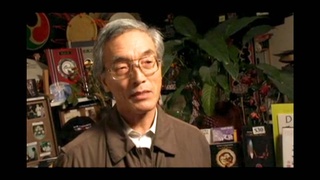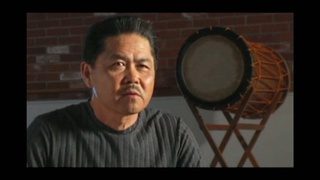Interviews
Developing an original kata
Well, naturally, when we first started, there was no real kata for us. There was no costumes. Our look was Kikkoman Shoyu happi coats with bellbottom pants and long hair and whatever it was. Seiichi Tanaka really kind of introduced kata to us and the form, what he knew, through Osuwa style and Oedo Sukeroku style of playing. So that became really the dominant form for us. So we were able to kind of work off of that basically and develop that.
Ondekoza started touring in the mid-‘70s, about 1975, ’76. So we were able to meet them. They actually came to San Jose. I think it was 1977, ’78 or so. They actually stayed here for a while. So we were able to learn and see how they operate.
But the kata for them, actually, is much different than what we were doing still. It wasn’t really the form that piqued our curiosity or interest in copying, but it was more so their commitment to music and style of doing things more so as a collective group of people. It was that philosophy that really kind of interested us because it was kind of parallel to how we were trying to do things but a much, naturally, different level. It was really something that we were trying to do here in San Jose because everyone had to be involved in what we were doing. It reinforced that fact, for us, that this is possible. We just had to modify, perhaps, how Ondekoza does it as a living style but as own community style here. To try to develop that was really kind of an important process of us, organizationally.
Date: January 26, 2005
Location: California, US
Interviewer: Art Hansen, Sojin Kim
Contributed by: Watase Media Arts Center, Japanese American National Museum




